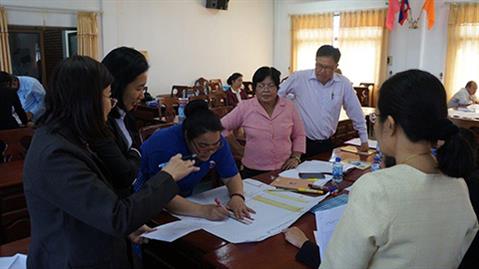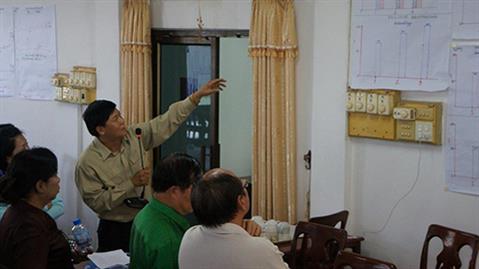
MANILA, 15 JULY 2016 - In the Western Pacific Region, the World Health Organization (WHO) is working to strengthen Early Essential Newborn Care (EENC) to prevent newborn deaths. Since 2014, with the help of the Centre for International Child Health (CICH), WHO Collaborating Centre for Research and Training in Child and Neonatal Health in Melbourne, Australia, WHO is extending its reach in the Lao People’s Democratic Republic to get EENC in place in health facilities.
Across eight priority countries – Cambodia, China, the Lao People’s Democratic Republic, Mongolia, Papua New Guinea, the Philippines and Solomon Islands – WHO is working with more than 2200 health facilities and 27 000 health workers to introduce EENC in routine childbirth and newborn care.
Following the first Forum of WHO Collaborating Centres in the Western Pacific in November 2014, the opportunity to leverage CICH’s expertise to support WHO activities in the Lao People’s Democratic Republic was realized and soon after formalized through a memorandum of understanding. CICH provides support to monitor maternal and newborn practices in health facilities by training health workers in the use of WHO’s health facility strengthening tool: Introducing and sustaining EENC in hospitals: routine childbirth and newborn care.
Specifically, CICH helped to conduct EENC health facility strengthening in four central hospitals and four provincial hospitals in 2015. WHO and Ministry of Health EENC national facilitators then continued to conduct the assessments in three more provinces. In 2016, WHO and Ministry of Health national facilitators have continued to scale this activity across the country, targeting provincial hospitals with government budget allocation. CICH will again be involved in implementation, including the follow-up with the initial four central and four provincial hospitals.
For health facility strengthening, health workers from different facilities are brought together to learn to use the tool and conduct assessments for their facilities. Key actions include reviewing the status of clinical practice, creating an enabling environment and coaching of staff, and monitoring progress against impact indicators to identify gaps and develop action plans. Results are shared among participants to promote cross-facility learning. CICH has supported data collection and analysis from central hospitals with WHO staff, through conducting exit interviews with mothers leaving the hospital after delivery and coordinating collection of hospital statistics.
This ongoing work requires regular monitoring to support health workers in making changes in their health facilities and to document the results of these changes. Early outcomes of this work include a decrease in central hospitals of harmful practices of health staff such as routine episiotomy or fundal pressure in their obstetric practice, alongside promoting essential newborn care practice such as early initiation of breast feeding and skin-to-skin contact.





